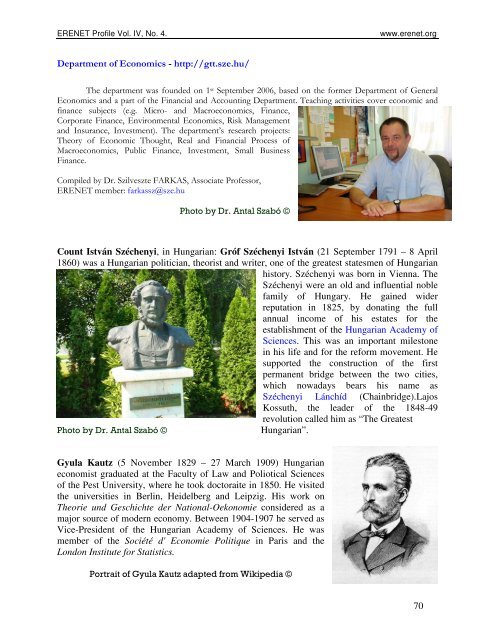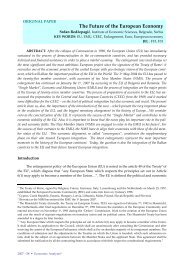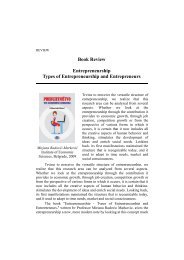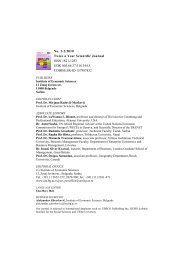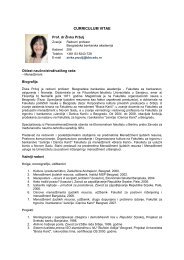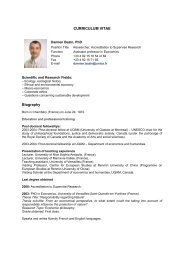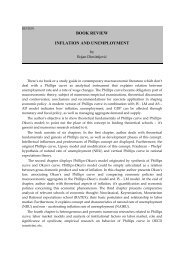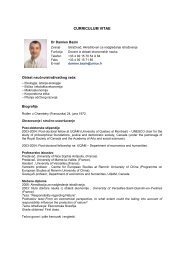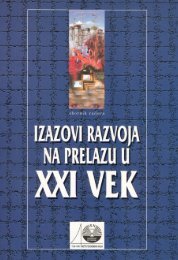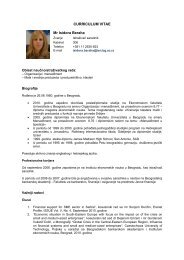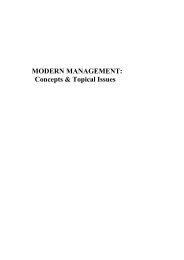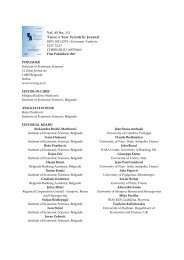Issue 16
Issue 16
Issue 16
You also want an ePaper? Increase the reach of your titles
YUMPU automatically turns print PDFs into web optimized ePapers that Google loves.
ERENET Profile Vol. IV, No. 4.<br />
www.erenet.org<br />
Department of Economics - http://gtt.sze.hu/<br />
The department was founded on 1 st September 2006, based on the former Department of General<br />
Economics and a part of the Financial and Accounting Department. Teaching activities cover economic and<br />
finance subjects (e.g. Micro- and Macroeconomics, Finance,<br />
Corporate Finance, Environmental Economics, Risk Management<br />
and Insurance, Investment). The department’s research projects:<br />
Theory of Economic Thought, Real and Financial Process of<br />
Macroeconomics, Public Finance, Investment, Small Business<br />
Finance.<br />
Compiled by Dr. Szilveszte FARKAS, Associate Professor,<br />
ERENET member: farkassz@sze.hu<br />
Photo by Dr. Antal Szabó ©<br />
Count István Széchenyi, in Hungarian: Gróf Széchenyi István (21 September 1791 – 8 April<br />
1860) was a Hungarian politician, theorist and writer, one of the greatest statesmen of Hungarian<br />
history. Széchenyi was born in Vienna. The<br />
Széchenyi were an old and influential noble<br />
family of Hungary. He gained wider<br />
reputation in 1825, by donating the full<br />
annual income of his estates for the<br />
establishment of the Hungarian Academy of<br />
Sciences. This was an important milestone<br />
in his life and for the reform movement. He<br />
supported the construction of the first<br />
permanent bridge between the two cities,<br />
which nowadays bears his name as<br />
Széchenyi Lánchíd (Chainbridge).Lajos<br />
Kossuth, the leader of the 1848-49<br />
revolution called him as “The Greatest<br />
Photo by Dr. Antal Szabó ©<br />
Hungarian”.<br />
Gyula Kautz (5 November 1829 – 27 March 1909) Hungarian<br />
economist graduated at the Faculty of Law and Poliotical Sciences<br />
of the Pest University, where he took doctoraite in 1850. He visited<br />
the universities in Berlin, Heidelberg and Leipzig. His work on<br />
Theorie und Geschichte der National-Oekonomie considered as a<br />
major source of modern economy. Between 1904-1907 he served as<br />
Vice-President of the Hungarian Academy of Sciences. He was<br />
member of the Société d' Economie Politique in Paris and the<br />
London Institute for Statistics.<br />
Portrait of Gyula Kautz adapted from Wikipedia ©<br />
70


